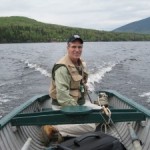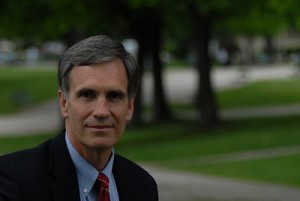How does one recover from a passion, a deep abiding interest and engagement? From a loss, maybe—that can take some work. But I don’t ever want to recover from politics, though I won’t run again.
I may have had less trouble than some recovering from a loss, because I chose after 12 years in Congress to take a long-shot chance at a U.S. Senate seat against Sen. Susan Collins, an incumbent with an approval rating over 60 percent. Those odds, I realize even more today, don’t usually work out, and mine did not.
When my friend Bill Delahunt retired rather than run again for the Massachusetts 10th district, he had a simple explanation: “I have a two-year old granddaughter.” I get it. My wife and I have a three-year old grandson and a one-year old granddaughter—with another on the way.
That’s not much of a prescription for younger recovering politicians, but it works for some of us.
I do miss the people, my constituents in Maine, all over the state. People of all ages and backgrounds from all walks of life; the students, the retired, labor activists, businessmen and women, health care providers, the uninsured, veterans and war protesters, delegates to party conventions and, yes, even (or especially) supporters of mine at political fund-raisers.
I don’t miss the hours, though. I ran into Tom Davis, the respected Virginia Congressman, on the street in Washington in 2009, the year after we had both left Congress. He just looked at me and said, “Weekends!”
Since I work now as the CEO of the Association of American Publishers, the public policy advocacy organization for the book publishing industry, I spend half of most months in Washington. So I still see some of my friends in (and after 2010) out of Congress. Most of those that have left in the last few years have few regrets, because the atmosphere of congressional activity has become poisonous.
As a form of recovery, I am refusing to leave the arena entirely. Within days of losing my Senate race, I started writing a book which has evolved into an attempt to explain the deeper sources of the polarization that cripples our ability to make long-term strategic decisions about our most pressing public issues.
For me, the signature question of my experience was, “Do these guys believe what they are saying?” That’s what we Democrats asked each other when we heard, “Tax cuts pay for themselves,” or “We’ll be welcomed as liberators,” or “Climate science isn’t proven.” We fully understood that many of our arguments made no sense to Republicans. Why not?
I am exploring the attitudes and ideas that shape our thinking on a range of issues. In particular, I want to highlight the enduring tension in American culture and politics between individualism and community. The working title is Dangerous Convictions: Inside a Polarized Congress. 
But spring is coming, the snow is melting in Maine, the birds returning and soon the fish will be moving again. I will pick up my fly rod and go off with my wife, Diana, to one of our favorite Maine sporting camps, casting for brook trout and landlocked salmon during the day and listening to the loons at night.
I will finish the book this year, and like most authors, I live in the hope that it will make a difference in how Democrats and Republicans think about each other, and, just perhaps, work together for the common good.










Leave a Reply